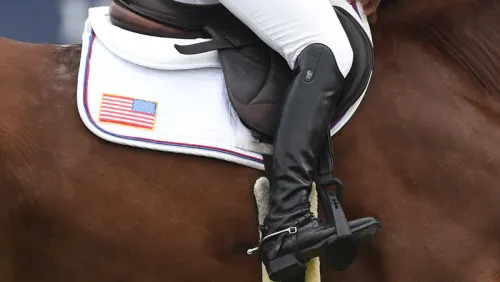The U.S. Department of Agriculture Animal And Plant Health Inspection Service announced today, May 15, that the protocol for importing stallion semen from countries affected by contagious equine metritis has been changed. The protocol modification, which will benefit U.S. breeders who wish to receive semen from stallions standing in any of the affected countries, is effective immediately.
Previously, a stallion undergoing the three-week CEM quarantine for semen export to the United States could not be collected during that period, except for the three samples collected for testing. Now, “collection of the semen can begin after the first negative culture result,” according to the USDA document. Since cultures are taken from the stallion for five consecutive days before semen collection begins, stallion owners can now collect semen for exportation or for domestic use while the stallion is undergoing CEM testing.
Scott Smith, who raises Cleveland Bays at Peters Creek Farm near Madison, Ga., said this is a breakthrough in the sport horse breeding industry, because now U.S. breeders will have wider access to genetic material from all over the world.
“This change will affect every stallion owner in [a CEM-affected country] who wants to export semen to the United States,” said Smith.
Smith was one of a group of Cleveland Bay supporters who contacted the USDA and asked them to change the testing protocol. The previous protocol was expensive, time consuming and negatively affected the options U.S. breeders. The Cleveland Bay breeders especially felt the pinch as there are only a few stallions left.
ADVERTISEMENT
CEM testing has to be performed on a stallion every time his manager wants to export semen to the United States. Smith said that, in the United Kingdom, the quarantine and testing for U.S. exportation costs $5,600 more than exporting semen to any other foreign country.
“Now, stallion owners can continue on business as usual while their horse undergoes quarantine,” he explained. “This puts us all on a level playing field. The ramifications are that we have better quality genetic material available to sporthorse breeders all over the world because this will affect all breeders, from Cleveland Bays to Hanoverians.”
The CEM-affected countries include: member countries of the European Union, the countries of the former Yugoslavia, the Czech Republic, Guinea Bissau, Japan, Slovakia, Slovenia and Switzerland.
To read the complete protocol,click here.














